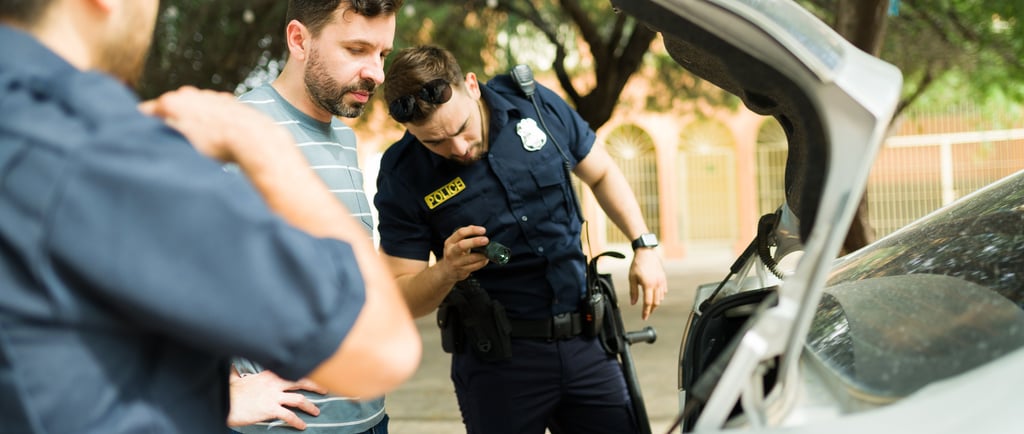Can Police Search Your Car Without a Warrant?
Can police search your car without a warrant? Learn your rights, when searches are legal, and how an unlawful search could lead to dismissed charges. Know what to do during a traffic stop.
Mark D Hauser
6/25/20252 min read


It’s a question many drivers face during a routine traffic stop: Can the police search my car without a warrant? The answer depends on several key factors — including whether officers have probable cause, your consent, or specific legal exceptions under the Fourth Amendment.
As a criminal defense attorney with over 30 years of experience, I’ve helped clients protect their rights in unlawful search and seizure cases. Below is what every driver should know about vehicle searches in Pennsylvania. I can be your reliable drug possession lawyer in Philadelphia.
The Fourth Amendment and Vehicle Searches
The Fourth Amendment to the U.S. Constitution protects you from unreasonable searches and seizures by law enforcement. This typically means police need a warrant issued by a judge based on probable cause. However, there are several exceptions when it comes to vehicle searches. Courts recognize that cars are mobile and may contain evidence that could be quickly moved or destroyed — which gives police more leeway in some situations.
When Can Police Search Your Car Without a Warrant in Pennsylvania?
1. With Probable Cause
If an officer has probable cause to believe your car contains illegal items (like drugs, weapons, or stolen goods), they can search it without a warrant.
Example: If an officer smells marijuana, sees drug paraphernalia in plain view, or hears an admission during the stop, that may give them probable cause to search.
2. If You Consent
If you voluntarily say, “Yes, you can search my car,” the officer can search without a warrant or probable cause.
Important: You always have the right to refuse consent. Politely say, “I do not consent to a search.”
3. Search Incident to Arrest
If you are lawfully arrested, police may search your vehicle’s passenger area to look for weapons or evidence related to the arrest.
Example: You’re arrested for DUI — the officer may search your car for alcohol containers or drug paraphernalia.
4. Items in Plain View
If illegal items are clearly visible, officers do not need a warrant to seize them.
Example: A gun on the front seat or open alcohol on the dashboard may justify further search.
5. Inventory Searches (Impounded Vehicles)
If your car is towed or impounded, police can perform an inventory search to log items in the vehicle — not to look for evidence — but they may still find and use illegal items.
When a Car Search May Be Illegal
Police cannot search your car based on:
A hunch or “gut feeling”
Your refusal to answer questions
Nervous behavior alone
Minor traffic violations (e.g., speeding, broken taillight) without other factors
If a search is conducted without a valid reason, your attorney can file a motion to suppress the evidence — and in many cases, the charges may be reduced or dismissed.
Your Rights During a Traffic Stop in Pennsylvania
You have the right to remain silent
You do not have to consent to a search
You may ask if you're free to go
You may record the interaction if you're not interfering
Always remain polite, but assert your rights clearly.
Charged After a Vehicle Search? You May Have a Defense.
If you were arrested after police searched your car, don’t assume the evidence will hold up in court. There are many situations where vehicle searches violate constitutional rights especially when probable cause is weak or consent was coerced. With over 30 years of experience in criminal defense, I’ll review whether the search was legal and if not, fight to have the evidence thrown out. For other instances and cases, I can be your DUI attorney in Philadelphia. Contact Mark D. Hauser, Attorney at Law for a confidential consultation.
